If you are searching for Liberty, it Is a Key Concept in Political Science In our modern world, the concept of liberty is under constant attack. Political correctness has made it taboo even to discuss the subject, and it is rapidly being eroded in the name of safety and security.
This is a travesty because liberty is at the very heart of what it means to be human. It is the cornerstone of our democracy, and without it, we are nothing more than a nation of sheep.
But what exactly is liberty? And what is its significance in political science? These are complex questions with no easy answers, but they are worth exploring.
Liberty can be defined as the freedom to do as one pleases, within the confines of the law. It is the ability to live your life as you see fit, without interference from others. It is a precious commodity that allows us to pursue our dreams and goals without fear of reprisal.
In political science, liberty is often seen as a core principle of democracy. It is the cornerstone of our system of government, and without it, we would be living in a dictatorship. Liberty is what gives us the right to vote, free speech, and freedom of assembly. It is what allows us to dissent against our government without fear of punishment.
Liberty is not absolute, however. There are always limits to what we can do in the name of liberty. For example, we cannot go around killing people or robbing banks under the guise of liberty. That would be anarchy, not liberty. There must always be a balance between the rights of the individual and the needs of society as a whole.
exploring the meaning and significance of liberty in political science can help us better understand the principles upon which our democracy is built. It can also help us appreciate the value of liberty and work to protect it from those who would seek to destroy it.
Meaning and Significance of Liberty in Political Science:
When we think about liberty, what do we mean? Is it the ability to do what we want, when we want? Is it the absence of restrictions or interference from others? Is it the right to live free from fear or oppression?
In political science, liberty is often thought of as the freedom to do what we want, without interference from the government or other authority. This includes the freedom to think and express ourselves, the freedom to worship as we please, and the freedom to pursue our goals and dreams.
Liberty is an important concept in political science because it helps us understand the relationship between citizens and their government. When we have liberty, we can choose our path in life and our government is there to protect our rights and help us achieve our goals. This relationship is not always perfect, but it is one that we strive for.
There are different ways to define liberty, but one thing is clear: it is an essential part of our lives. It allows us to pursue our dreams and goals, and to live life on our terms.
The Historical Origins of Liberty Theory
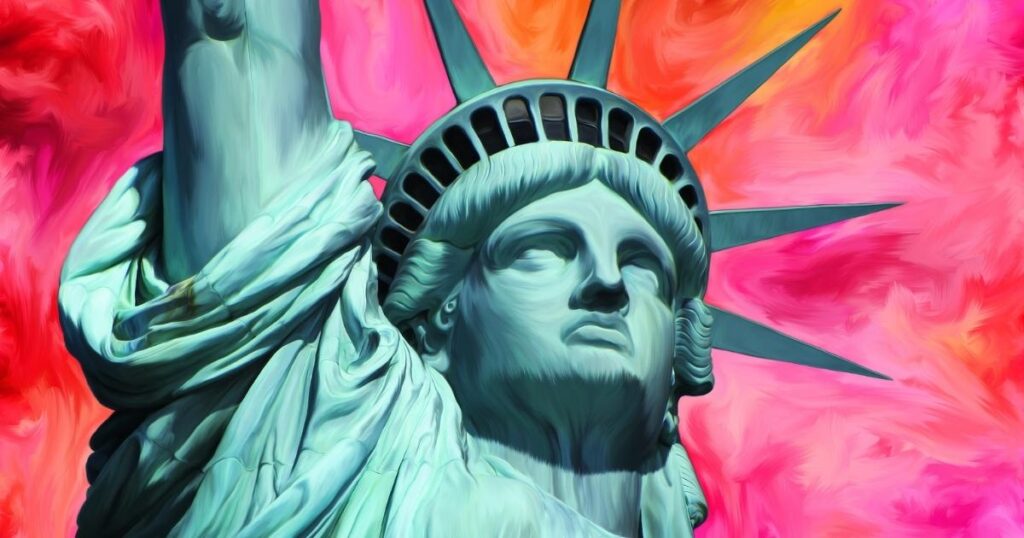
Since the dawn of civilizations, people have been searching for ways to live together peacefully and harmoniously. Throughout history, various theorists have proposed different ways in which people can achieve liberty and freedom.
One of the earliest theories of liberty was put forward by the Greek philosopher Aristotle. Aristotle believed that people could achieve liberty through self-mastery and living by reason. The reason, for Aristotle, was the ability to discern the good life and live by it. This meant living a life of virtue, which he believed would lead to happiness and flourishing.
Aristotle’s theory of liberty was later taken up and elaborated upon by the Roman philosopher Cicero. Cicero argued that people could achieve liberty by living by natural law. Natural law, for Cicero, was reason itself, which he believed was inherent in all human beings. Cicero believed that by living by natural law, people could achieve a state of true liberty where they were free from the domination of others.
The English philosopher John Locke also put forward a theory of liberty. Locke argued that people were born with certain natural rights, including the right to life, liberty, and property. He believed that government exists to protect these natural rights and that people have a right to overthrow a government that fails to do so.
The French philosopher Jean-Jacques Rousseau also had a theory of liberty. Rousseau believed that people were born free and equal, but that they were subject to “the tyranny of the majority” in society. He believed that people could only be truly free if they lived in a society where there was equality and fraternity among citizens.
Throughout history, there have been many different theories of liberty. These theories have been influenced by the political and social contexts in which they were developed. However, they all share the common goal of trying to find ways in which people can live together peacefully and harmoniously.
The Role of Freedom in Liberty Theory
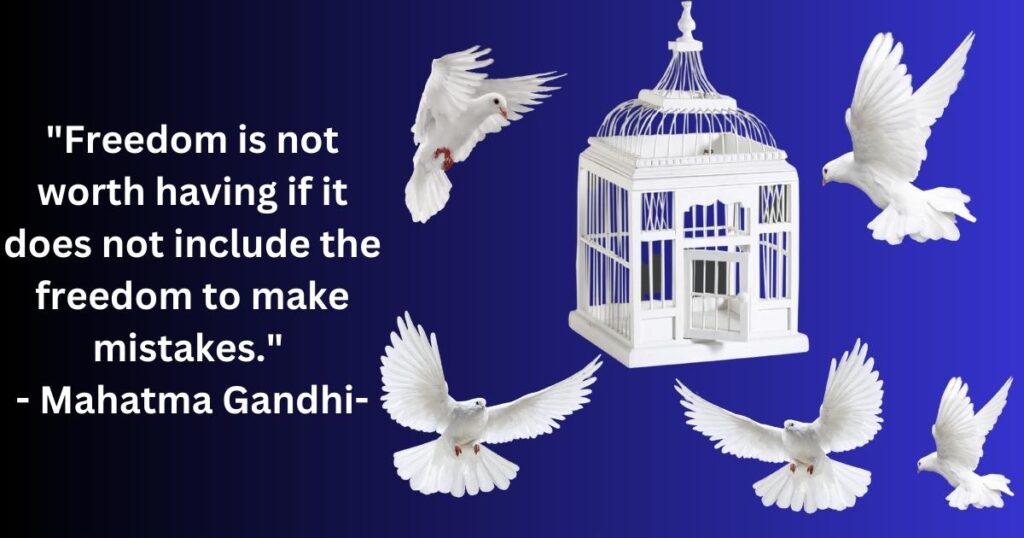
In political philosophy, the notion of freedom comes up in several different contexts. On one hand, freedom can be seen as the absence of coercion or constraint in one’s life. On the other hand, freedom can also refer to the freedom to act, or the liberty to do as one pleases. In this latter sense, freedom is often tied to the concepts of rights and autonomy.
The philosophical debate over the meaning and value of freedom is an ancient one, and there are several different ways of thinking about it. One major approach is known as “liberty theory.” Liberty theory is the view that freedom is the most important political value and that the proper role of government is to protect and defend freedom.
There are several different versions of liberty theory, but they all share a basic commitment to the idea that freedom is the most important value in politics. For some liberty theorists, this means that the only legitimate role of government is to protect individual rights. Others argue that government can play a positive role in promoting freedom, but that this must be done within the bounds of respecting individual rights.
One of the most influential liberty theorists was John Stuart Mill, who argued that the only legitimate purpose of government is to protect the rights of individuals. Mill believed that individuals should be free to pursue their happiness in whatever way they see fit, as long as they do not infringe on the rights of others. He also believed that individuals have a responsibility to use their freedom in ways that will promote the general welfare of society.
While Mill’s view of freedom is widely accepted, other liberty theorists have put forward different ideas. For instance, some argue that government should not only protect individual rights but also actively promote freedom and opportunity. Others argue that freedom should be limited to protect against social harm.
The debate over the role of freedom in liberty theory is an important one, and there is no easy answer. What is clear, however, is that the philosophical concept of freedom is complex and multi-dimensional. As such, it is an important value to consider in any discussion of politics and ethics.
The Different Types of Liberty
There are many different types of liberty, and each one is important in its way. Here are some of the most important types of liberty:
1. Political liberty is the right to participate in the political process, including the right to vote, the right to run for office, and the right to speak freely about politics.
2. Economic liberty is the right to earn a living, produce and sell goods and services, and keep the proceeds from one’s work. It also includes the right to property and contract rights.
3. Social liberty is the right to associate with others and to live in a society where one can pursue one’s happiness. This includes the right to freedom of assembly, freedom of association, and freedom of speech.
4. Religious liberty is the right to believe and practice any religion, or to abstain from religion altogether. This includes the right to worship freely, the right to evangelize, and the right to build religious institutions.
5. Moral liberty is the right to live according to one’s conscience and morality, without interference from the government or others. This includes the right to privacy, the right to abortion, and the right to end one’s life.
Each of these types of liberty is important in its way, and all of them together make up a free society.
The Social Context of Liberty
The social context of liberty is the set of relationships between individuals and groups that affects the distribution and use of power in a society. It includes both the institutions and norms that define the rights and responsibilities of individuals and groups and the patterns of interaction between them.
The social context of liberty is often said to include three key elements: freedom, equality, and order. Freedom is the ability of individuals to act independently without interference from others. Equality is the equal treatment of individuals in a society, regardless of their status or position. Order is the set of rules and procedures that govern interactions between individuals and groups.
The social context of liberty can be thought of as a framework within which individuals and groups can interact in a way that is both free and ordered. This framework sets the boundaries within which individuals can act without harming others, and it establishes the rights and responsibilities of individuals and groups. It also provides a set of rules and procedures for resolving disputes between individuals and groups.
The social context of liberty is essential for the proper functioning of any society. It provides the framework within which individuals can pursue their own goals without harming others, and it ensures that everyone is treated fairly and equally.
The Impact of Liberty on Political Philosophy:
The idea of liberty has been a powerful force in shaping political philosophy. It has helped to shape the way we think about the relationship between the individual and the state, and has been used to justify a wide range of political systems.
In the ancient world, the concept of liberty was used to challenge the authority of rulers. The Stoics, for example, argued that individuals should be free to pursue their happiness, without being subject to the arbitrary will of rulers. This idea was later taken up by the Roman Emperor Marcus Aurelius, who argued that individuals should be free to live according to their nature, and not be forced to conform to the artificial rules of society.
The concept of liberty was also used by Christian thinkers to challenge the authority of the state. Augustine, for example, argued that the state should only use force to defend the innocent, not to impose its own will on people. This idea was later taken up by Thomas Aquinas, who argued that the state should only use force for the common good, and not for its own sake.
The idea of liberty also had a significant impact on political thought in the Muslim world. Ibn Tufail, for example, argued that individuals should be free to pursue knowledge, without being subject to the whims of rulers. This idea was later taken up by Ibn Rushd, who argued that the state should only use force to protect the rights of individuals, and not to impose its own will on them.
The concept of liberty also had a major impact on the development of modern political philosophy. Hobbes, for example, used the idea of liberty to justify a powerful central state, while Locke used it to justify a state with limited powers. Rousseau used the idea of liberty to justify a state where the citizens had a direct say in how it was run.
The impact of liberty on political philosophy has been profound. It has helped to shape the way we think about the relationship between the individual and the state, and has been used to justify a wide range of political systems.
The Role of Power and Authority in Liberty
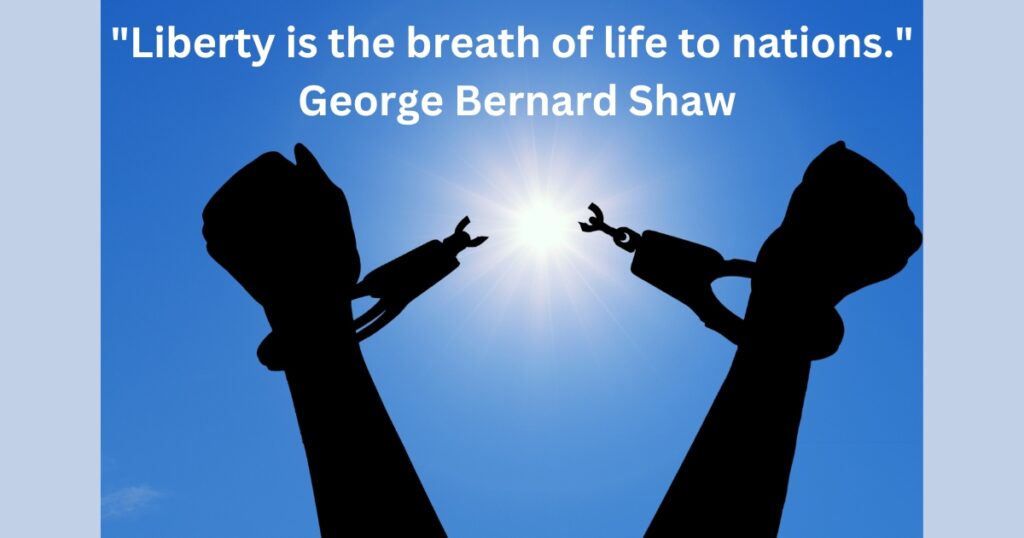
The question of liberty has been pondered by thinkers throughout history. In its simplest form, liberty is the ability to do as one pleases. But as society has become more complex, the concept of liberty has become more nuanced. There are now different types of liberty, each with its own set of rules and guidelines. And at the heart of all these different types of liberty is the question of power and authority.
In a free society, power and authority are two of the most important factors in ensuring that liberty is maintained. Power is the ability to control or influence others, while authority is the right to do so. Together, these two factors help to ensure that people can make their own choices and that those choices are respected by others.
One of the most important ways in which power and authority help to preserve liberty is by ensuring that people can freely express themselves. In a society where power and authority are evenly distributed, people are more likely to feel comfortable expressing their opinions and beliefs. This, in turn, leads to a greater exchange of ideas and a greater understanding of different points of view.
Another way in which power and authority help to preserve liberty is by setting limits on the actions of others. In a society where power and authority are not evenly distributed, there is always the potential for abuse. By setting limits on what people can do, power and authority help to prevent those with the most power from taking advantage of those with less.
Liberty is a complex concept, and many different factors contribute to its preservation. But power and authority are two of the most important. By ensuring that people can freely express themselves and that there are limits on the actions of others, power and authority help to keep a society free.
Examining the Role of Liberty in Modern Politics
What is liberty? This is a question that has been asked throughout history and one that still plagues modern society. There are many different interpretations of liberty, and its role in politics has been just as hotly contested. In this blog post, we’ll be taking a look at the different ways liberty has been defined, and how it has been used (and abused) in modern politics.
One of the earliest and most influential definitions of liberty came from the ancient Greek philosopher Aristotle. For Aristotle, liberty was a state of being free from external constraints. This meant that individuals were free to pursue their interests and goals without interference from others.
Aristotle’s definition of liberty was later adopted by the Roman Stoics, who expanded upon it. The Stoics believed that individuals were only truly free if they were in control of their own emotions and desires. This meant that they had to be able to resist any external pressures or temptations that might lead them astray.
The Stoic definition of liberty was further refined by the French philosopher Jean-Jacques Rousseau. Rousseau believed that individuals were only free when they were living by their natural desires and instincts. This meant that they had to be free from any artificial or artificial constraints, such as those imposed by society or the government.
The English philosopher John Locke also had a significant impact on the development of the concept of liberty. Locke argued that individuals had a natural right to life, liberty, and property. This meant that they could not be deprived of these rights by any other individuals or by the government.
Locke’s ideas about liberty were later elaborated upon by the American Founding Fathers. In the Declaration of Independence, they declared that “all men are created equal” and that they have “certain inalienable rights, including the right to life, liberty, and the pursuit of happiness.” These ideas were later codified in the US Constitution, which guaranteed individual rights such as freedom of speech and freedom of religion.
Despite all these different definitions of liberty, there is one common thread that runs through all of them: the idea that individuals should be free to live their lives as they see fit, without interference from others. This is what is known as negative liberty.
In contrast, there is also a positive conception of liberty, which holds that individuals should not only be free from interference
The globalization of the world economy has led to increased challenges to liberty. In particular, the increased interconnectedness of economies has led to a situation where the actions of one country can have significant impacts on the liberty of people in other countries.
The global financial crisis is a case in point. The origins of the crisis lay in the United States, but the consequences were felt around the world. In particular, the crisis led to a loss of liberty for many people who lost their jobs or saw their incomes reduced.
The increased interconnectedness of the world economy also means that economic policies in one country can have unintended consequences for other countries. For example, the decision by the United States to pursue quantitative easing to boost its economy led to an influx of capital into emerging economies, which led to inflation and currency appreciation. This had the effect of reducing the competitiveness of those economies and led to job losses.
The globalization of the world economy has also led to the increased mobility of capital. This increased mobility makes it difficult for countries to pursue policies that are designed to promote the welfare of their citizens, as capital can quickly move to another country if it perceives that it is not being treated fairly.
The increased interconnectedness of the world economy has also led to the rise of transnational corporations. These corporations are often more powerful than national governments and are not subject to the same accountability. This can lead to a situation where the interests of transnational corporations are placed above the interests of citizens.
The globalization of the world economy has also led to an increase in economic inequality. The benefits of globalization have tended to accrue to those who are already wealthy, while the costs have been borne by those who are less well-off. This has led to increased resentment and can act as a brake on economic growth.
All of these challenges pose significant threats to liberty. To safeguard liberty in an increasingly globalized world, it is necessary to take action at both the national and international levels.
At the national level, countries need to put in place policies that will promote the welfare of their citizens and ensure that their interests are protected. This includes ensuring that there is adequate regulation of transnational corporations and financial markets. It also includes ensuring that national policies do not unintentionally harm other countries.
At the international level, there needs to be greater cooperation to address global challenges. This includes cooperation on issues such as financial regulation, tax avoidance, and environmental protection. It also includes working together to address global problems such as pandemics and climate change.
only way to effectively safeguard liberty in an increasingly globalized world is to take action at both the national and international levels.
but also be actively supported and protected in their pursuit of happiness. This is the kind of liberty that is enshrined in the welfare state.
So, which of these two conceptions of liberty is more relevant to modern politics? That is a difficult question to answer. On the one hand, negative liberty does have a strong tradition in Western politics, dating back to Aristotle and Locke. On the other hand, positive liberty is becoming increasingly important in today’s world, as more and more countries adopt welfare state policies.
In the end, it is up to each individual to decide what they believe is the more important kind of liberty. What is certain is that liberty will continue to be a hotly contested concept in politics for many years to come.
Challenges to Liberty in an Increasingly Globalized World
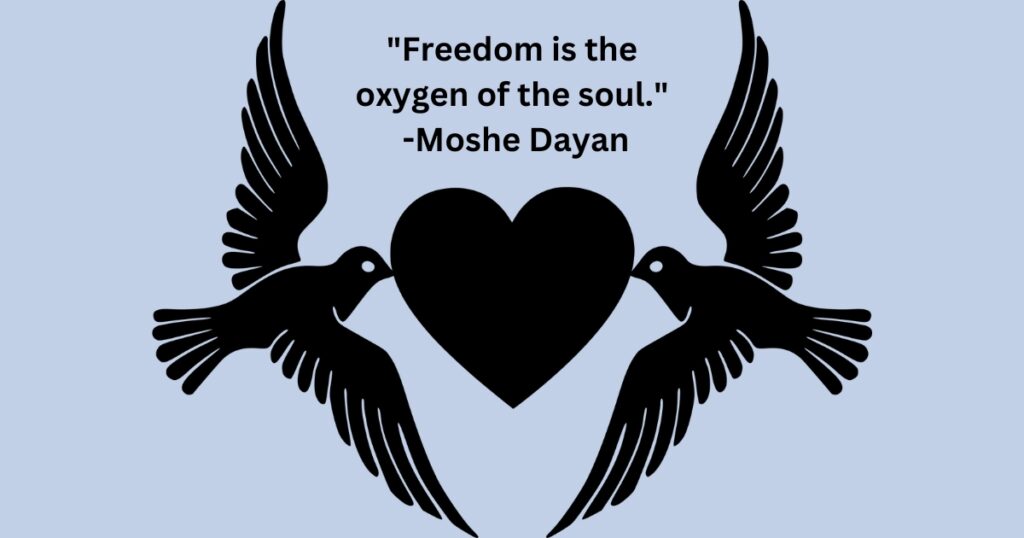
The increasing globalization of the world economy has led to several challenges to liberty. In particular, the growth of multinational corporations and the rise of international financial institutions have led to a considerable concentration of economic power in the hands of a few large corporations and a small number of wealthy individuals. This concentration of economic power has had several negative consequences for liberty, including:
– The erosion of national sovereignty and the dilution of democratic accountability.
– The growth of global inequality, as the benefits of globalization have been disproportionately enjoyed by the rich and powerful.
– The increase in economic insecurity, as jobs and businesses have become increasingly mobile and workers have become increasingly vulnerable to exploitation.
– The rise of new forms of authoritarianism, as corporations and wealthy individuals have used their economic power to influence and undermine democratic institutions.
These challenges to liberty are likely to become even more acute in the future as the world economy becomes even more globalized. To protect liberty in an increasingly globalized
The founders of the American Republic were well aware of the dangers of tyranny and the importance of liberty. As James Madison wrote in Federalist 51, “If men were angels, no government would be necessary.” In creating the constitutional republic that is the United States of America, the Founders aimed to strike a balance between ensuring that the government had enough power to function effectively and ensuring that the government did not have so much power that it could abuse the liberties of its citizens.
The question of how much power the government should have and how much liberty citizens should have has been debated throughout the history of political thought. In recent years, there has been a resurgence of interest in liberty as a political value, as evidenced by the popularity of books such as Liberty in Liberalism by Alan Ryan and Why Liberty by Isiah Berlin.
political science, the study of politics, has traditionally been divided into two main branches: normative political theory and positive political science. Normative political theory is concerned with what ought to be, while positive political science is concerned with what is. Liberty is a normative concept, which means that it is concerned with what should be. The question of whether or not liberty is relevant to positive political science is therefore a question of whether or not it is possible or desirable to value liberty in a scientific study of politics.
There are several reasons why one might think that liberty is not relevant to positive political science. Firstly, as mentioned above, political science is traditionally divided into two main branches, and liberty has traditionally been seen as a concern of normative political theory rather than positive political science. Secondly, even within normative political theory, there has been a debate between those who think that liberty is the most important value and those who think that other values, such as equality or democracy, are more important. And thirdly, some people have argued that the concept of liberty is too vague and undefined to be useful in scientific study.
However, there are also good reasons to think that liberty is relevant to positive political science. Firstly, as the philosopher John Gray has argued, the fact that something is a normative concept does not mean that it cannot be studied scientifically. Rather, normative concepts simply present a different kind of challenge to scientists, one that can be met by careful definition and rigorous research. Secondly, even if one accepts that other values, such as equality or democracy, are more important than liberty, it does not follow that liberty is irrelevant to positive political science. On the contrary, as Gray has also argued, liberty is “the indispensable condition for the realization of any other value.” In other words, liberty is a necessary prerequisite for the attainment of other values, and so it is still relevant to positive political science even if it is not the most important value.
So what does all of this mean for the relevance of liberty in political science? The answer is that it depends on how one defines liberty and what one considers to be the most important values in politics. If one takes a broad view of liberty as including all of the various freedoms that people have (such as the freedom to speak, the freedom to worship, and the freedom to pursue happiness), then it is certainly possible to value liberty in positive political science. However, if one takes a narrower view of liberty as simply freedom from government coercion, then it might be more difficult to value liberty in positive Political Science since there are other values, such as equality and democracy, which might be seen as more important. Ultimately, the answer to this question will depend on the individual researcher’s definition of liberty and their values.
world, it is essential that we defend and strengthen the institutions of democracy, and fight back against the concentrations of economic power that are threatening our freedom.
Conclusion: Exploring the Relevance of Liberty in Political Science
The conclusion of this book explores the relevance of liberty in political science. The author first discusses how liberty is relevant to the scientific study of politics. Liberty is relevant to the study of politics because it is the foundation of political order. Without liberty, there can be no political order. The author then discusses how liberty is relevant to the practice of politics. Liberty is relevant to politics because it is the foundation of individual rights. Without liberty, individuals would have no rights. The author concludes by discussing how liberty is relevant to the future of political science. Liberty is relevant to the future of political science because it is the foundation of democracy. Without liberty, democracy would not be possible.
People Also Read: Career Opportunities for Political Science Students at a Global Level.
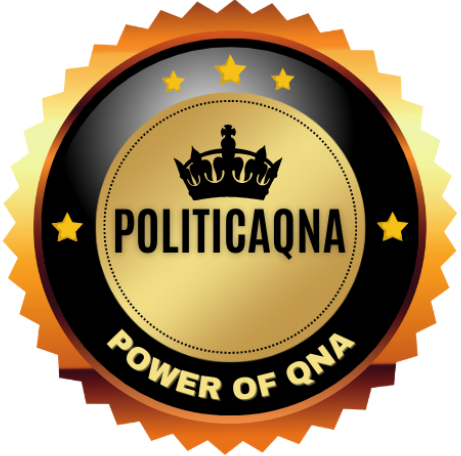


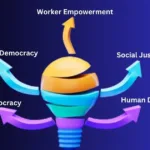
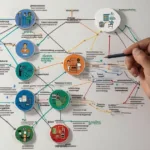
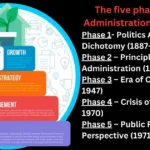






I am truly thankful to the owner of this web site who has shared this fantastic piece of writing at at this place.
Thank you☺️